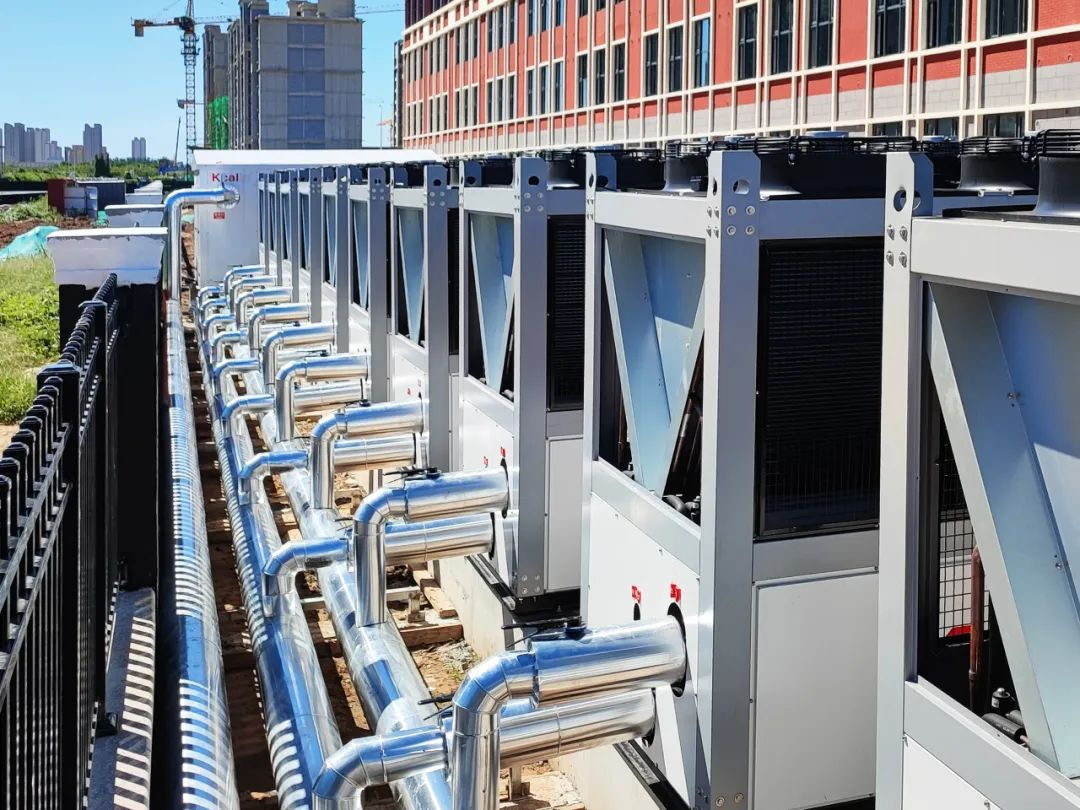With the rapid development of social technology, heating technology has also ushered in a new revolution. In this context, air source heat pumps, as an environmentally friendly, efficient, and intelligent heating solution, are gradually being favored by university campuses. This article will explore the application scenarios of university air source heat pumps and analyze their advantages in improving heating efficiency and reducing energy consumption.
The working principle of air source heat pump
Air source heat pump is a system that utilizes low-quality thermal energy in the air for heating. Its working principle is similar to refrigeration air conditioning, which absorbs the heat energy in the low-temperature outdoor air through a circulation system, and then transfers the heat energy to the indoor through the process of compression and release, achieving heating effect.
Application scenarios in university campuses
Student dormitory heating: Student dormitories on university campuses are usually areas with high heating demand. Air source heat pumps, with their efficient heating performance, can meet the heating needs of student dormitories in cold winter. Meanwhile, its intelligent control system can flexibly adjust the heating power according to actual needs, improving energy utilization efficiency.

Teaching Building Heating: Teaching buildings are densely populated areas within university campuses, with a high demand for heating. Air source heat pumps use the heat energy in the outdoor air for heating, avoiding the problem of requiring a large amount of coal or gas in traditional heating methods, reducing environmental pollution, and conforming to the concept of green environmental protection in modern universities.
Laboratories and research facilities: Laboratories and research facilities on university campuses have strict requirements for environmental conditions such as temperature and humidity. Air source heat pumps can precisely regulate indoor temperature and humidity through control systems, providing researchers with a stable and comfortable working environment.
Libraries and cultural facilities: University libraries and cultural facilities are places for academic exchange and cultural activities, with high requirements for heating quality. Air source heat pumps, through their balanced heating performance, can provide a warm and comfortable environment for these places, improving the quality of academic research and cultural activities.
The advantages of air source heat pumps
Environmental protection and energy conservation: Compared to traditional heating methods, air source heat pumps do not require fuel combustion, reducing the emissions of carbon dioxide and other harmful gases. Meanwhile, due to its utilization of thermal energy in the environment for heating, it has higher energy efficiency and significant energy-saving effects.
Intelligent control: The air source heat pump is equipped with an intelligent control system, which can adjust the heating power in real-time based on indoor and outdoor temperature, humidity and other parameters, achieving precise heating. Through remote monitoring, campus managers can monitor energy consumption anytime and anywhere, and carry out intelligent management.
Safe and reliable: Air source heat pumps do not have open flames or combustion processes, and do not produce harmful gases such as carbon monoxide, reducing the risk of fire and poisoning. Meanwhile, its simple structure, stable and reliable operation, reduces the probability of equipment failure, and improves the reliability of the heating system.
Strong adaptability: Air source heat pumps have strong adaptability and are not limited by geography. Whether in cold northern regions or warm southern regions, it can provide stable heating effects. This enables university campuses to choose air source heat pumps as the ideal heating method in different geographical environments.
With the increasing demand for environmental protection and energy efficiency in society, air source heat pumps, as a clean and efficient heating method, have broad application prospects in university campuses. In the future, it is foreseeable that air source heat pumps will continue to play an important role in the heating of university campuses, and their performance will be continuously improved through technological innovation to better meet the needs of different application scenarios.
In the era of intelligent heating, the application of hollow air source heat pumps in university campuses provides strong support for improving heating efficiency, reducing energy consumption, and achieving environmental protection goals. Its advantages in environmental protection, intelligence, safety and reliability make it the preferred heating solution for future university campuses. Through continuous innovation and application, air source heat pumps will undoubtedly usher in broader opportunities in promoting the development of campus heating in universities.







Comment